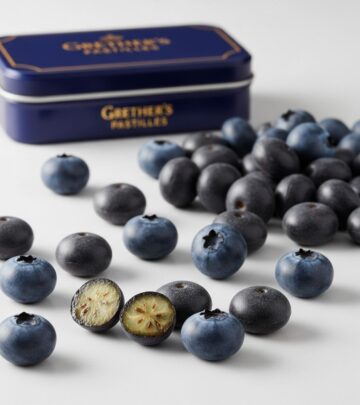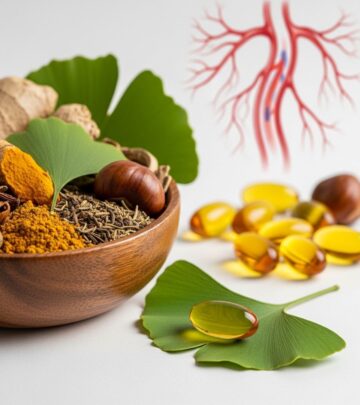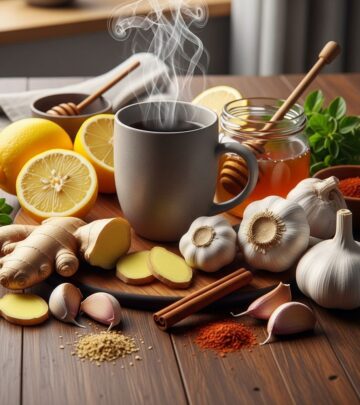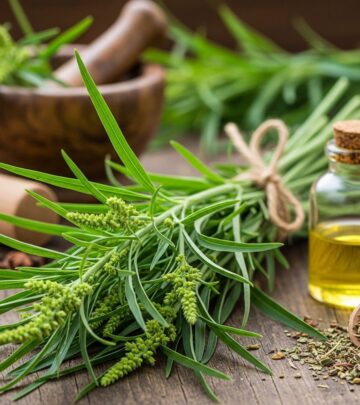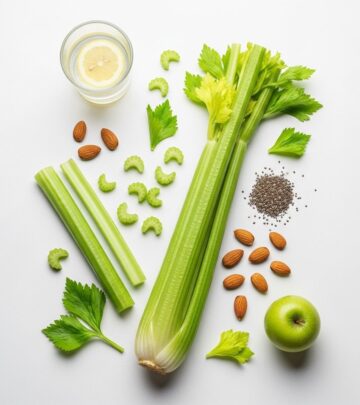14 Effective Home Remedies for Chest Congestion Relief
Soothe chest congestion naturally with quick, effective home remedies and actionable lifestyle tips for lasting relief.
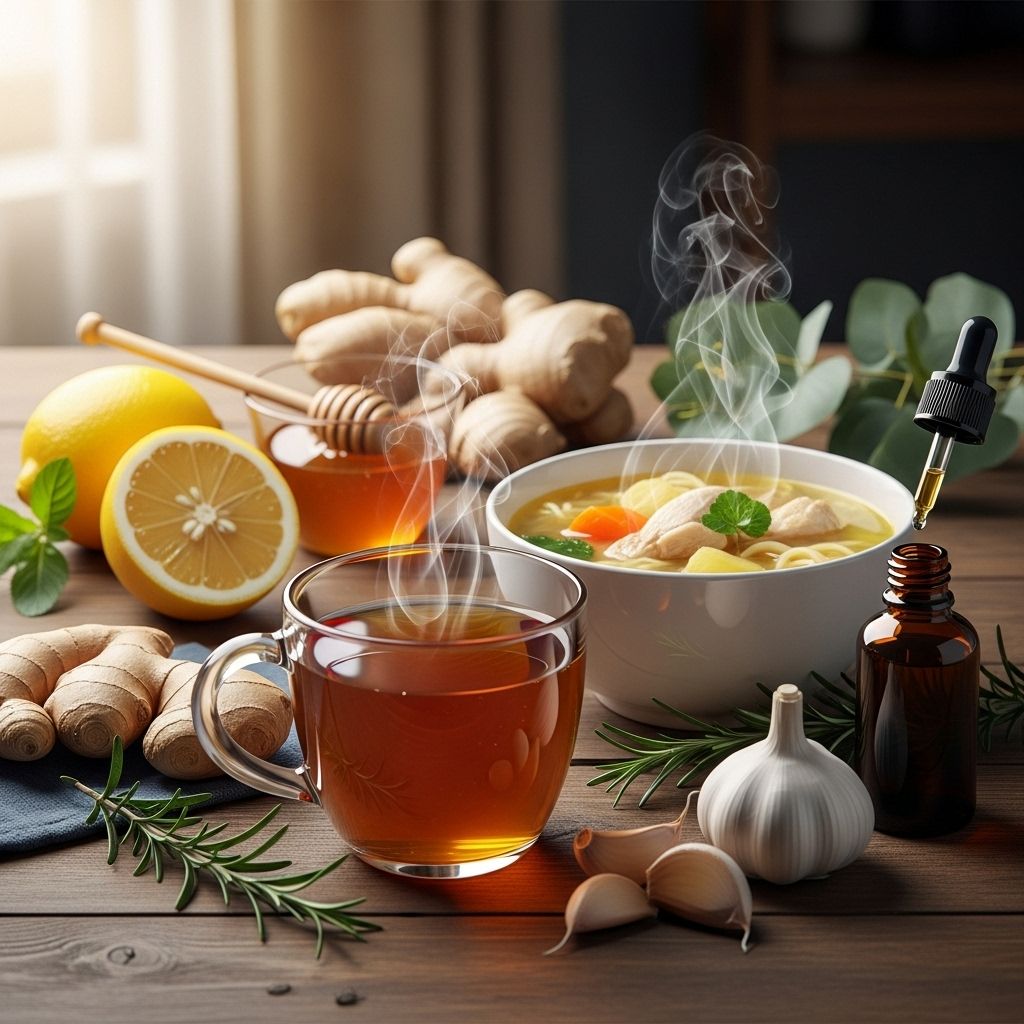
If you’re suffering from chest congestion—that heavy, tight feeling in your chest accompanied by persistent coughing, thick mucus, or shortness of breath—simple natural solutions at home can bring quick and lasting relief. Chest congestion commonly occurs as a result of colds, flu, bronchitis, or allergies, and while over-the-counter medications are available, proven home remedies can support faster recovery and make you more comfortable.
Table of Contents
- What Is Chest Congestion?
- Signs and Symptoms
- Common Causes
- 14 Natural Home Remedies for Chest Congestion
- Prevention and Lifestyle Tips
- When to See a Doctor
- FAQs
What Is Chest Congestion?
Chest congestion is the accumulation of mucus and fluid in the lungs and airways, often causing discomfort, difficulty breathing, and a wet, rattling cough. It is usually a symptom of underlying respiratory infections or inflammation and can make everyday activities challenging.
Signs and Symptoms of Chest Congestion
- Heaviness or tightness in the chest
- Difficulty breathing or shortness of breath
- Persistent cough (usually productive, bringing up phlegm)
- Wheezing or rattling sounds when breathing
- Thick, sticky mucus or phlegm
- Chest pain, sometimes worse with coughing
- Fatigue and general discomfort
Common Causes of Chest Congestion
- Viral or bacterial infections: Such as the common cold, influenza, or bronchitis
- Allergies: Reactions to pollen, dust, pets, or other irritants
- Asthma or chronic obstructive pulmonary disease (COPD)
- Exposure to smoke, pollution, or strong fumes
- Sinus infections (sinusitis): Can also cause postnasal drip, increasing chest mucus
14 Natural Home Remedies for Chest Congestion
While medical treatment is vital for severe or persistent cases, these 14 home remedies can provide safe, soothing relief and help your body recover faster. Always consult a doctor if symptoms are severe, worsen, or last longer than a week.
1. Steam Inhalation
Steam therapy loosens thick mucus, opening airways and making it easier to cough up phlegm. You can:
- Boil water and pour it into a large bowl. Lean over the bowl (keeping your face at a safe distance), cover your head with a towel, and inhale the steam for 5–10 minutes.
- Add a few drops of eucalyptus oil or peppermint oil for amplified decongestant effects.
- You can also take a hot shower and breathe in the steam for similar benefits.
2. Salt Water Gargle
Gargling with warm salt water helps soothe an irritated throat, thin out mucus, and remove bacteria from the upper respiratory tract. To do this:
- Dissolve half a teaspoon of salt in a glass of warm water.
- Gargle for 30 seconds, then spit out. Repeat 2–3 times daily.
3. Honey and Lemon Tea
Honey offers antimicrobial and soothing properties that calm a sore throat, while lemon is rich in vitamin C to support immunity. Together, they help reduce inflammation and loosen mucus.
- Mix 1 tablespoon of honey and juice of half a lemon in a cup of warm water or herbal tea.
- Drink this 2–3 times a day, especially before bedtime.
4. Ginger Tea
Ginger acts as a natural expectorant and anti-inflammatory. It helps loosen and break up mucus, making coughing more productive and alleviating congestion.
- Boil 1–2 inches of fresh ginger root in a cup of water for 5–10 minutes.
- Strain, add honey if desired, and sip slowly.
- Repeat 2–3 times per day.
5. Turmeric Milk
Turmeric contains curcumin, known for its anti-inflammatory and antimicrobial properties, which help relieve chest discomfort and promote recovery.
- Add half a teaspoon of turmeric powder to a glass of hot milk (dairy or plant-based).
- Stir well and drink before bedtime to soothe symptoms and support immune function.
6. Apple Cider Vinegar Gargle
Apple cider vinegar may reduce phlegm and help fight infections. For a gargle:
- Mix 1–2 teaspoons of apple cider vinegar in a glass of warm water.
- Gargle for 30 seconds and spit. Repeat 1–2 times daily.
7. Warm Soups and Broths
Consuming warm broths and soups hydrates the body, loosens mucus, and delivers nutrients needed for immune support. Chicken soup (or a vegetable broth) is ideal. Inhaling the steam while eating provides additional relief.
8. Essential Oils (Eucalyptus, Peppermint, Menthol)
- Eucalyptus oil: Add a few drops to hot water for steam inhalation or use in a diffuser.
- Menthol and peppermint oils: The cooling vapors open airways and help clear congestion.
- Salves containing these oils can be gently rubbed on the chest (never apply directly to broken skin or on young children without consulting a pediatrician).
9. Stay Hydrated
Drinking sufficient fluids thins mucus, making it easier to clear from your airways. Prioritize:
- Water (room temperature or warm)
- Herbal teas
- Broths
- Fresh fruit juices (avoid sugary drinks)
10. Black Coffee (in Moderation)
Black coffee contains caffeine that can help expand airways and ease shortness of breath in mild cases, providing temporary relief from congestion. Limit to 1–2 cups daily and avoid if sensitive to caffeine.
11. Spicy Foods (Cayenne Pepper, Chili)
Capsaicin, the active ingredient in hot peppers, acts as a natural decongestant. Spicy foods help thin mucus and open nasal passages:
- Add cayenne or chili pepper to soups and dishes, or opt for spicy salsas.
12. Posture Changes and Chest Percussion
- Elevate your head: Use extra pillows at night or recline upright to prevent mucus pooling and improve breathing.
- Postural drainage: Gently tap the chest and back (percussion) to help loosen trapped mucus, especially effective for children or those with chronic lung conditions.
13. Avoid Irritants
Smoking and exposure to pollutants, dust, and strong fragrances worsen congestion and slow recovery. Ensure your room is well ventilated and consider using an air purifier if indoor air quality is poor.
14. Humidifiers
Adding moisture to dry air via a humidifier can keep mucus loose, soothe the airways, and reduce coughing spells, especially during winter or in dry climates. Clean humidifiers regularly to prevent mold and bacteria buildup.
Prevention and Lifestyle Tips for Chest Congestion
- Practice regular handwashing and avoid close contact with sick individuals to reduce infection risk.
- Maintain adequate hydration every day, not just when sick.
- Eat a balanced diet rich in fruits, vegetables, and whole grains to support a healthy immune system.
- Limit exposure to cigarette smoke, dust, and pollution.
- Exercise regularly to enhance lung function and overall health.
When Should You See a Doctor?
Home remedies effectively target mild congestion, but consult a doctor immediately if you:
- Have shortness of breath, chest pain, or wheezing that gets worse
- Notice blood in your mucus
- Run a high fever or experience confusion
- Have symptoms lasting more than a week or recurrent episodes
- Have underlying chronic conditions (asthma, COPD)
Frequently Asked Questions (FAQs)
Q: Can I use these remedies for children?
A: Some remedies (like honey) are not suitable for children under one year due to the risk of botulism. Always check with a pediatrician before using essential oils or strong decongestants in young children.
Q: How often should I perform steam inhalation for chest congestion?
A: Steam inhalation can be done 1–2 times daily for 5–10 minutes each session. Stop if you feel dizzy or have difficulty breathing.
Q: What foods should I avoid when I have chest congestion?
A: Avoid dairy products if you find they worsen your mucus, processed foods, excess sugar, and fried foods, which can contribute to inflammation.
Q: How long does chest congestion typically last?
A: Mild viral congestion often improves within 7–10 days with rest and home care. Seek medical advice if symptoms last longer or worsen.
Q: Are there any quick remedies for nighttime relief?
A: Elevate your head with extra pillows, sip warm liquids before bed, and use a humidifier or steam inhalation close to bedtime to reduce nightly coughing.
Summary Table: Remedies and Main Benefits
| Remedy | Main Benefit |
|---|---|
| Steam inhalation | Loosens mucus, opens airways |
| Honey & lemon | Soothes throat, reduces cough, antimicrobial |
| Ginger tea | Expectorant, anti-inflammatory |
| Warm fluids | Hydrates, thins mucus |
| Essential oils | Decongests, clears sinuses |
| Black coffee | Expands airways, short-term relief |
| Spicy foods | Natural decongestant |
Chest congestion can be uncomfortable, but with the right combination of natural remedies and preventive strategies, you can breathe easier and feel better faster. Always prioritize your safety and consult a healthcare professional for persistent or severe symptoms.
References
- https://medisyshealth.org/newsletter/7-home-remedies-to-relieve-chest-congestion/
- https://www.ndtv.com/lifestyle/4-home-remedies-to-help-relieve-a-congested-chest-1907398
- https://timesofindia.indiatimes.com/life-style/health-fitness/health-news/10-home-remedies-to-get-rid-of-chest-mucus-and-congestion-naturally/articleshow/123447559.cms
- https://www.stylecraze.com/articles/effective-home-remedies-for-chest-congestion/
- https://www.youtube.com/watch?v=RC9pFndtJVw
- https://health.clevelandclinic.org/bronchitis-home-remedies
- https://www.businessinsider.com/reference/how-to-stop-coughing
Read full bio of Sneha Tete

